The school implemented a concept named “E-Sports City”, which is extended the professional domain knowledge from Department of Animation and Game Design. At the same time, it has integrated into many professional fields, including animation, games, VR, technical art, performance art, player training, anchor, and live broadcast, TV program production, event management (planning and sales), digital marketing, new media innovation, and supply chain of related field. Moreover, based on E-Sports City concept, the department establishes the following centres and equipment:

電競城主題館


| ESPORT Arena Design College Building/DB143 It cultivates e-Sports players, live broadcasters, software design engineers, video game designers, domestic businesses and other customer services (such as online customer service, sales points, etc.), e-Sports related product developers, as well as animation, games, film and television, e-Learning in the related industry. |
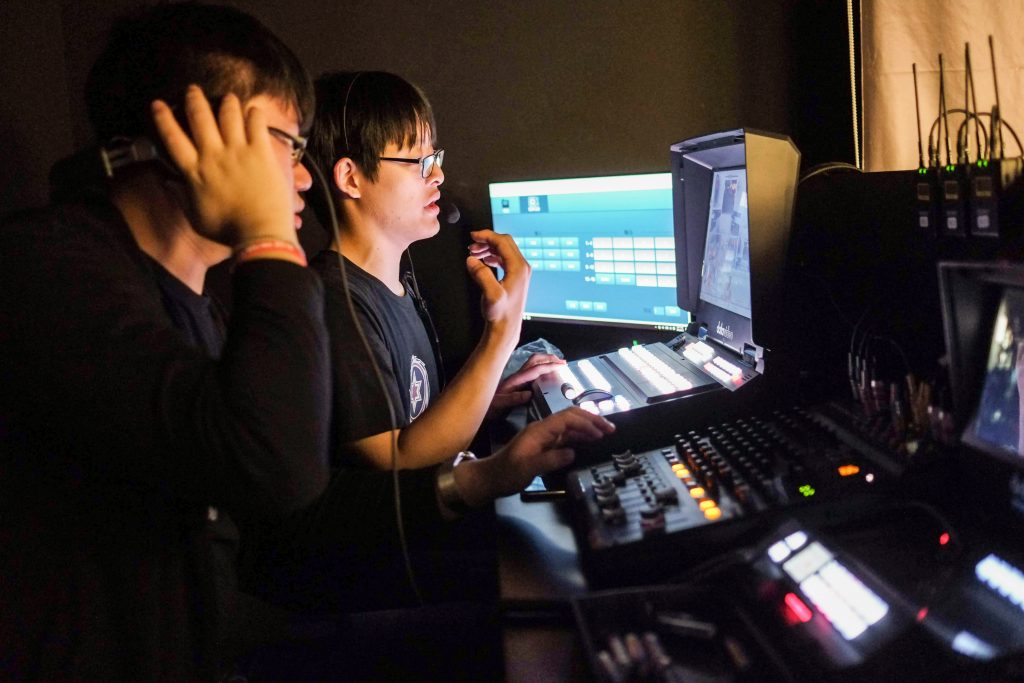 導播 導播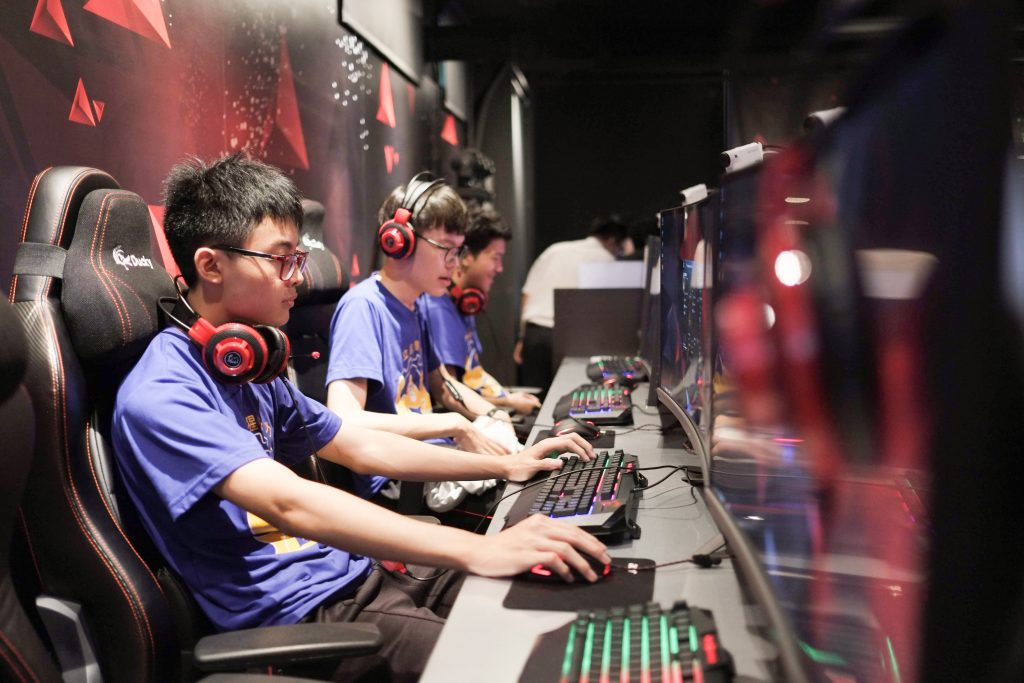
選手競技 |
|
  |
||
| E-Sports Training Room Design College Building/DB158 It cultivates e-Sports players, live broadcasters, software design engineers, video game designers, domestic businesses and other customer services (such as online customer service, sales points, etc.), e-Sports related product developers, as well as animation, games, film and television, e-Learning in the related industry. |
 |
|
 |
||
| Leading Broadcast Training Centre Design College Building/DB144 It cultivates e-Sports players, live broadcasters, software design engineers, video game designers, domestic businesses and other customer services (such as online customer service, sales points, etc.), e-Sports related product developers, as well as animation, games, film and television, e-Learning in the related industry. |
 主播培訓及影音後製合成 主播培訓及影音後製合成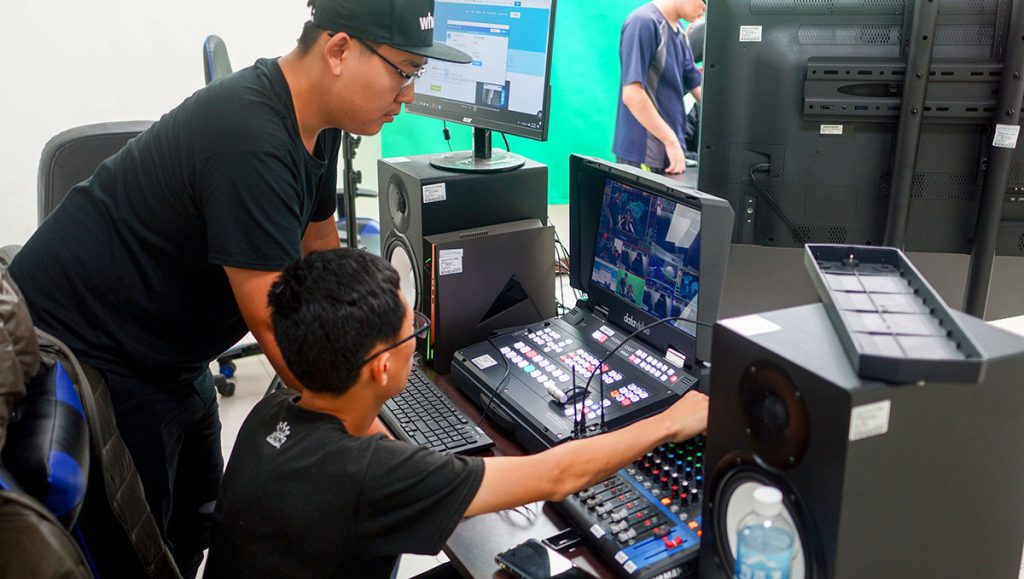
導播培訓 |
|
 |
||
| Live Broadcasting and Post-production Laboratory Design College Building/DB105 It employs six recording studios, which cultivates vocal talents such as anchor, sound post-production, game sound effects, soundtrack, film and television, digital learning, and broadcasting. |
 錄音室 錄音室
影音後製作 |
|
 |
||
| AR/VR Interactive Technology Laboratory Design College Building/DB633 It employs HTC VIVE VR environment, which allows students to instantly learn the game production procedure and design verification process. The lab includes the following equipment:
|
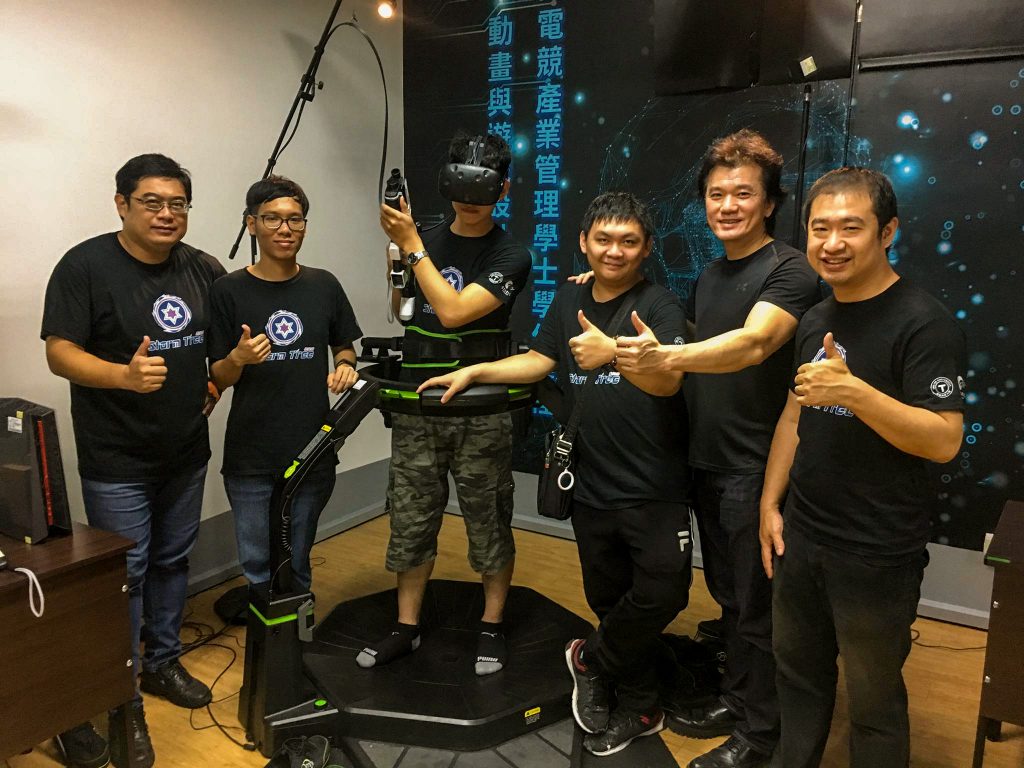 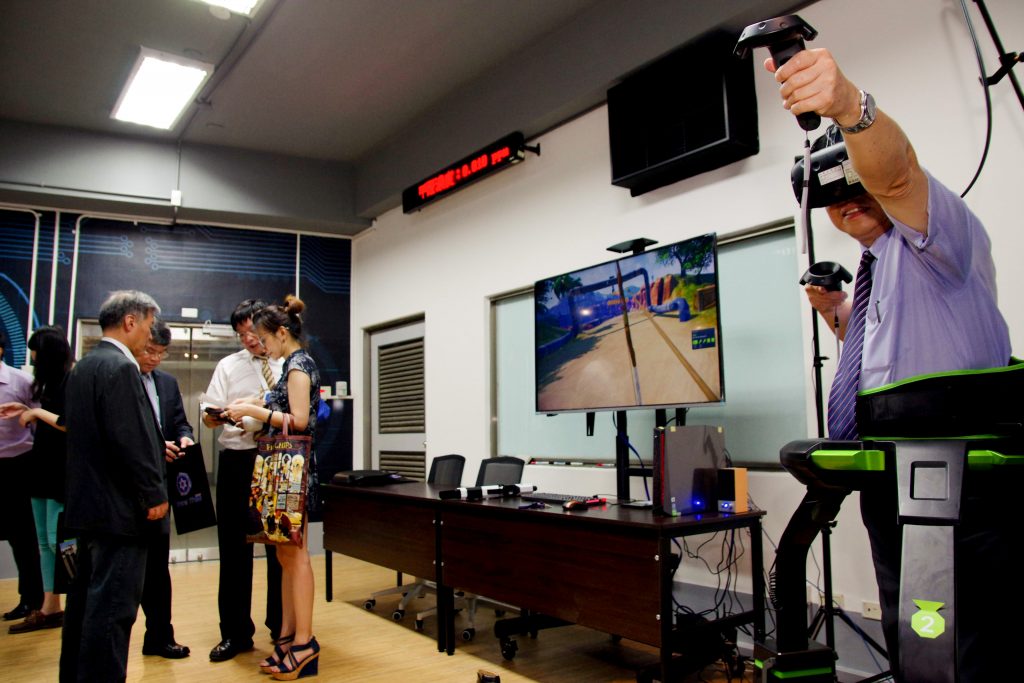 |
|
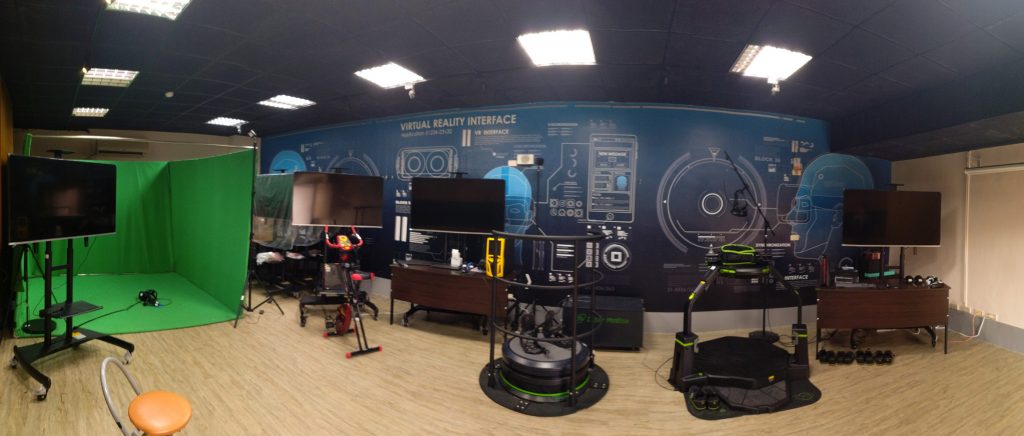 |
||
| Motion Capture Laboratory HENGSHAN INNOVATION BASE/H0403 FB : https://www.facebook.com/stu.digital.studio This lab is located in the 4th floor of HENGSHAN INNOVATION BASE, where equips passive motion capture system with has invested tens of millions of Taiwanese Dollars to set up 20 high-speed infrared cameras, which can perform 3D animation screen shooting, image post-production, special effects processing, image synthesis, motion capture, etc. The equipment is at the industry standard. |
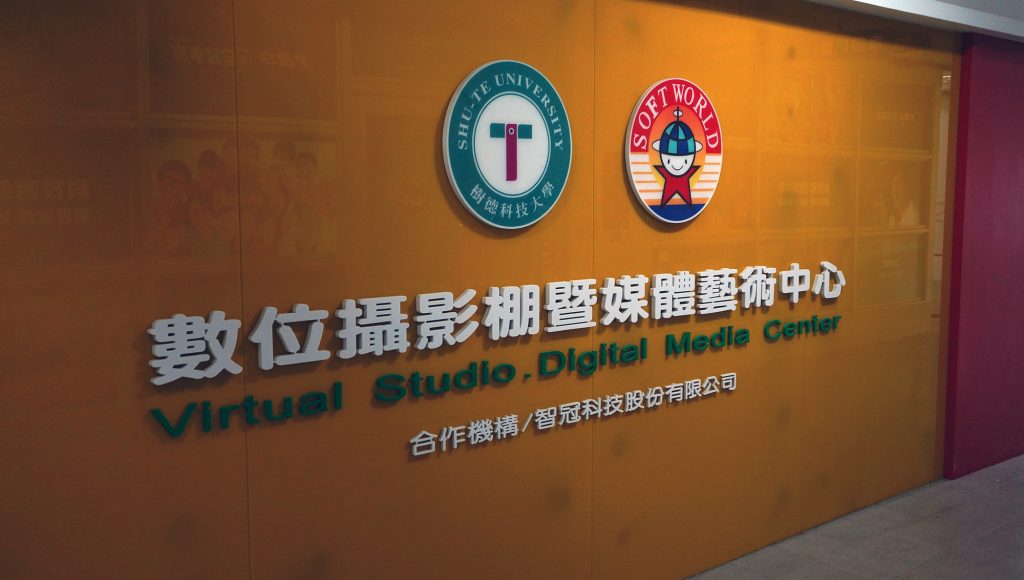 |
| Exhibition Corrido Design College Building/B1 Provide students with the field of performances, pass on the messages they want to express to the masses, and learn to face self-assertion of the masses. |
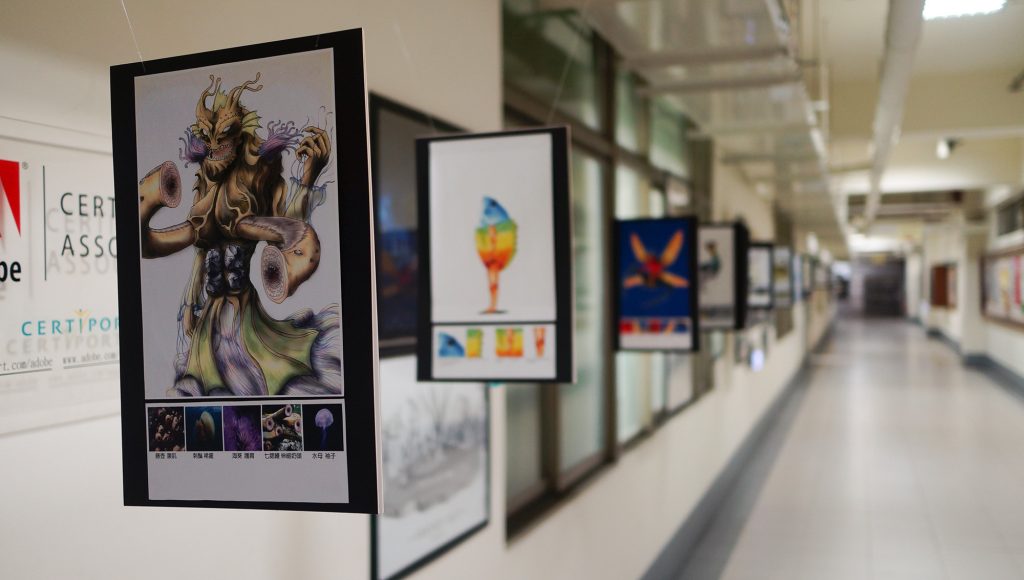 |
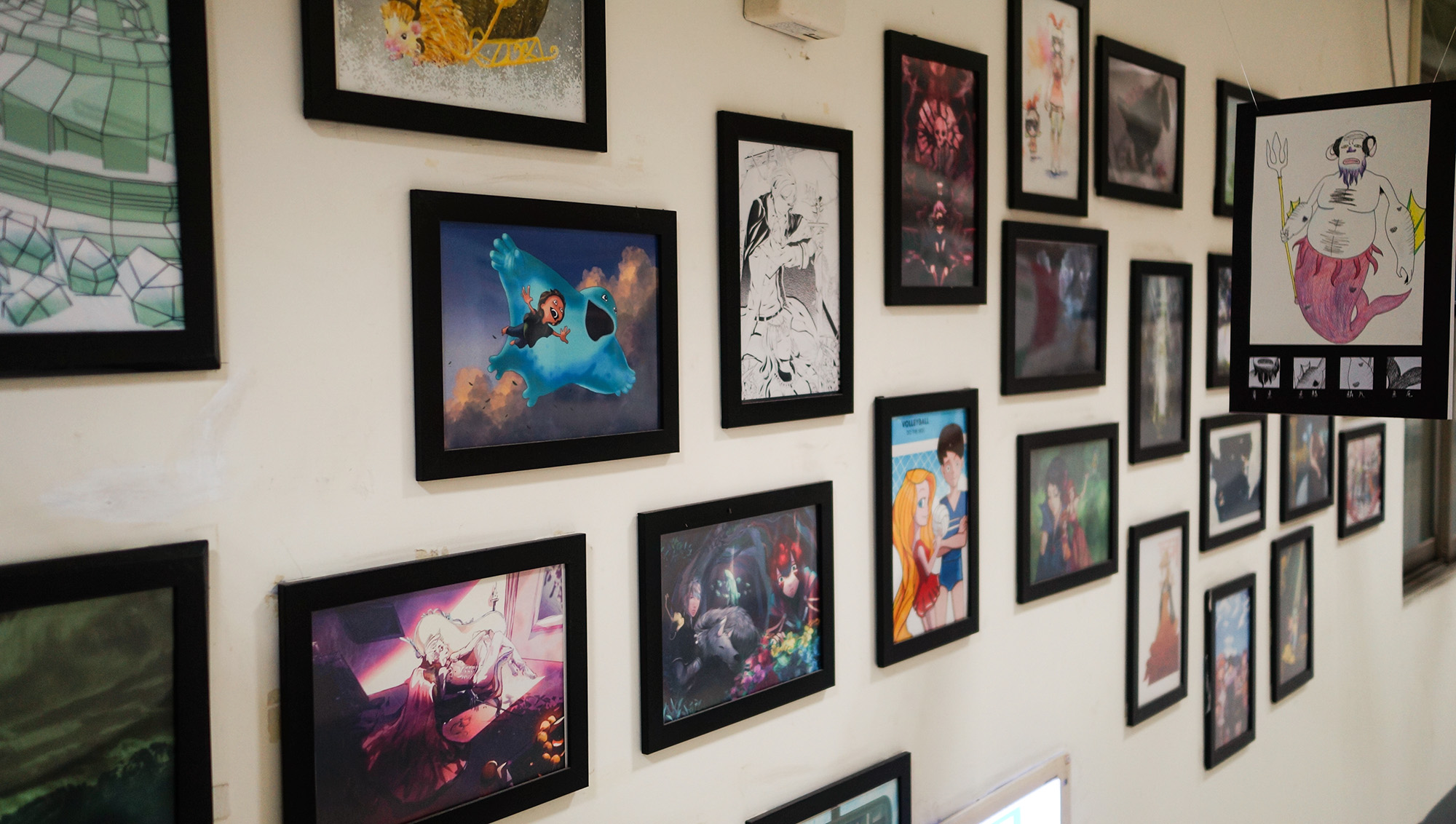
| Maker and Exhibition Laboratory HENGSHAN INNOVATION BASE/H0201 This lab is located on the 2nd floor of HENGSHAN INNOVATION BASE. Since the maker culture is a variant of culture in design industries, they are often rooted in a unique interest and have the perseverance and faith groups, so-called the Maker. They love technology, are keen to practice themselves, and firmly believe that they are well-fed. The lab has its self-created culture based on an extension of the DIY culture, in which it incorporates technical elements. DIY culture is a combination of punk concept and anti-consumerism. The punk concept usually represents rebellion, anti-authority, individualism and free-thinking. The resulting self-created culture has some of its characteristics. It does not agree with casual consumption and is willing to reuse it creatively under existing resources.
The lab also employs the following equipment: 3D creation software, 3D printing machines, laser cutting machines, 3D printing machine, the Arduino hardware and software platform, interactive sensors, etc. The laboratory will combine industry-university cooperation and departmental curriculum planning. Students could acquire the following knowledge and skills:
|
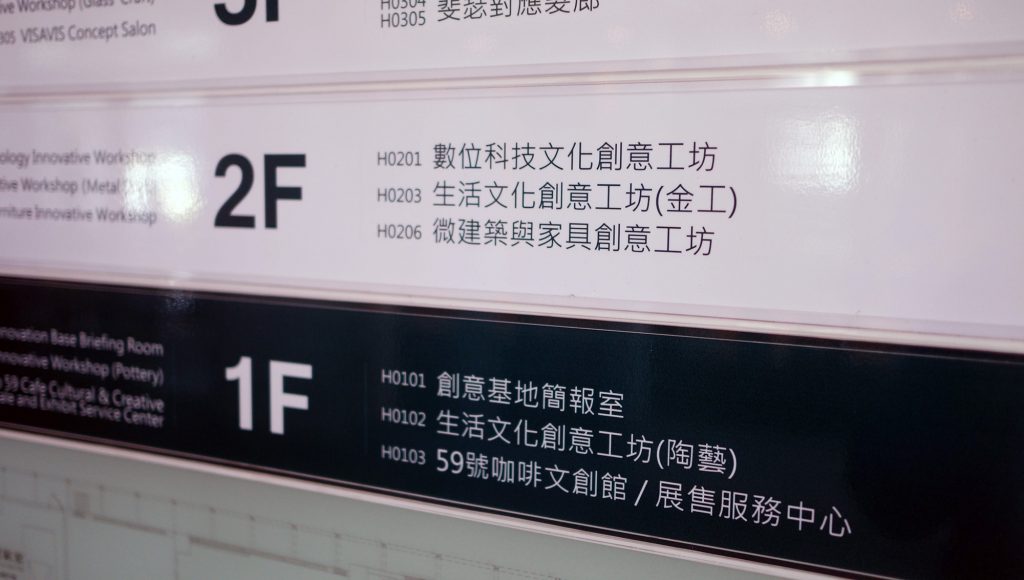
|
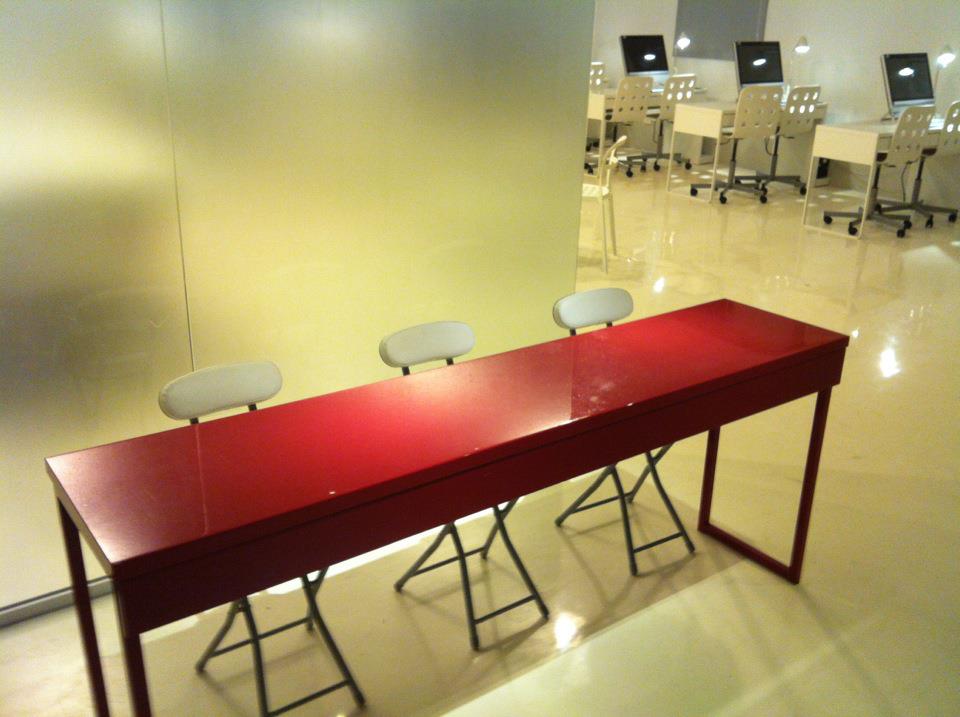 |
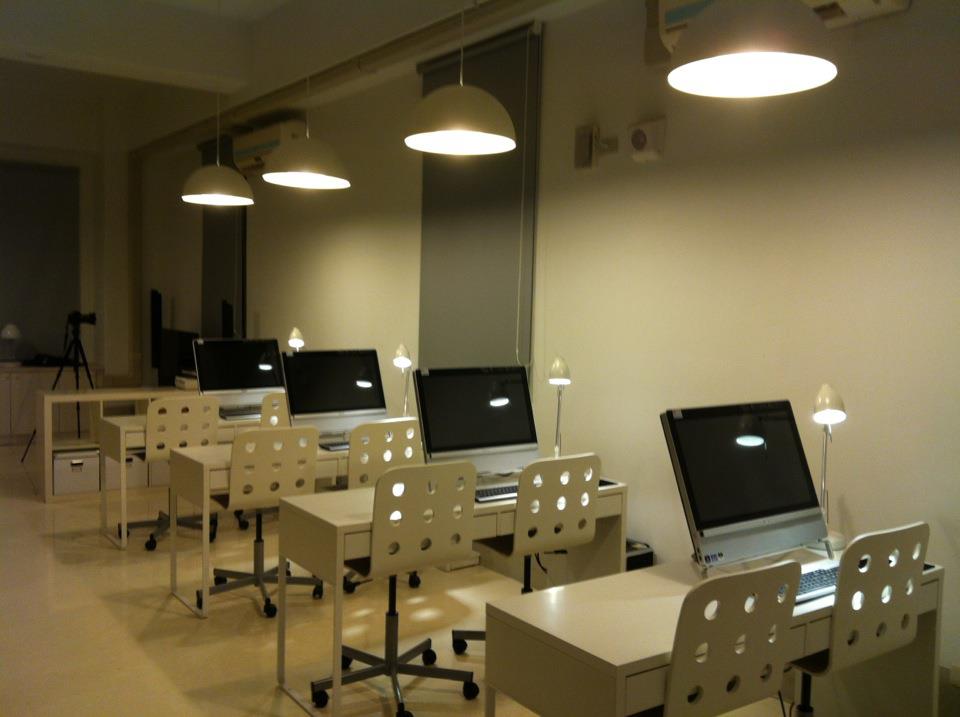 |
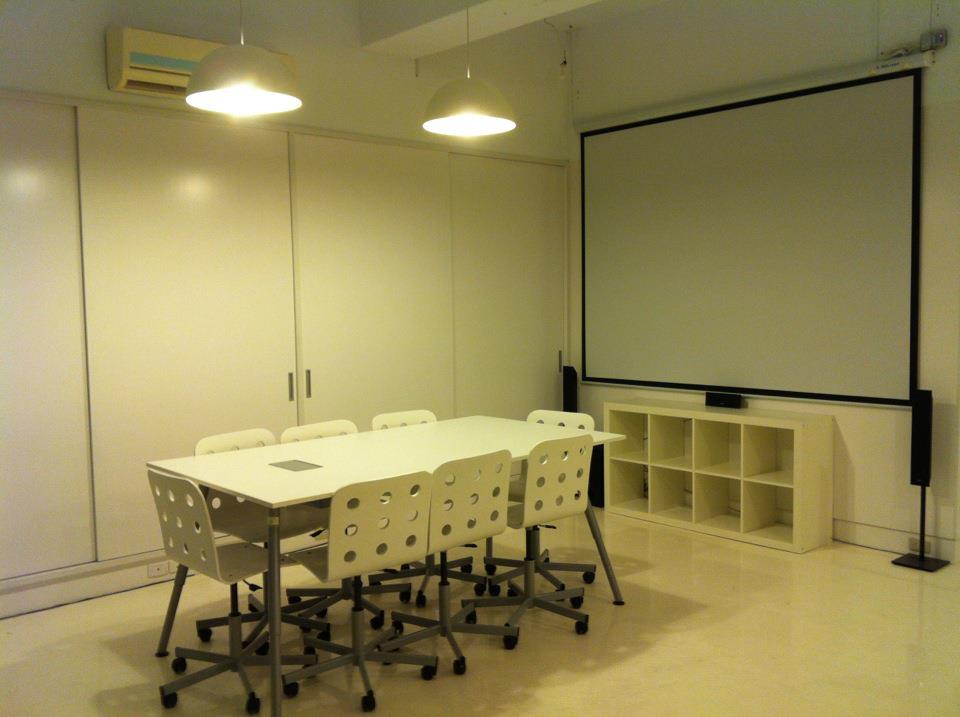 |
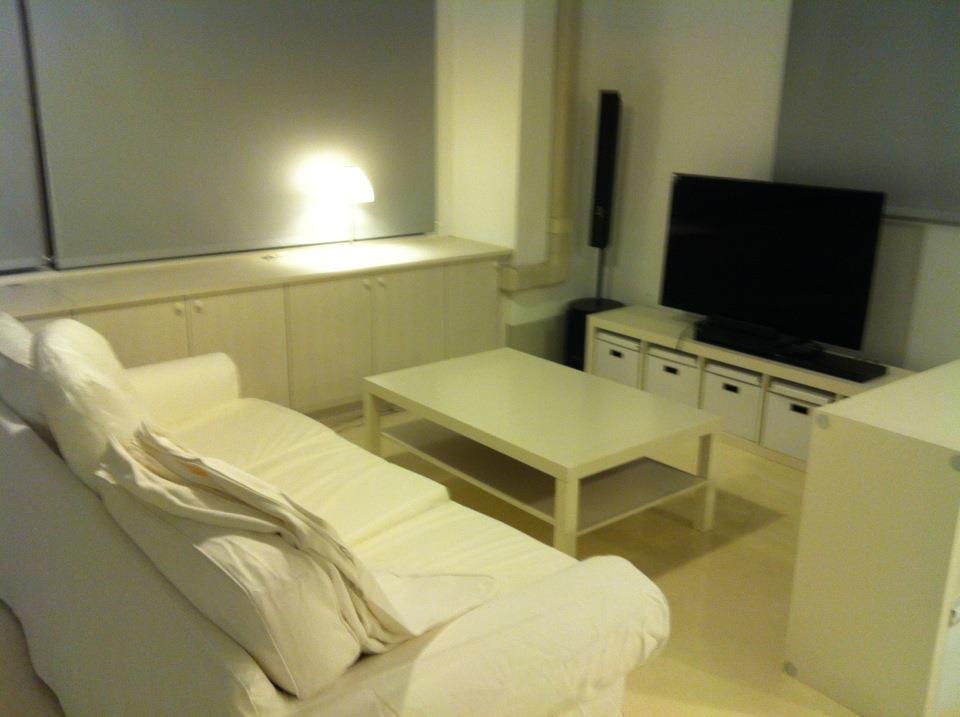 |

